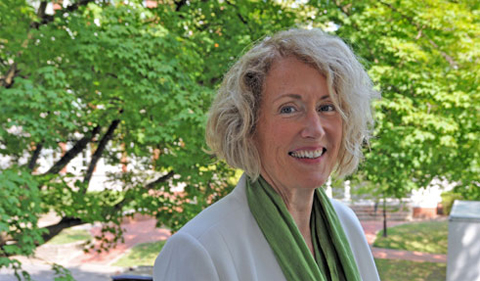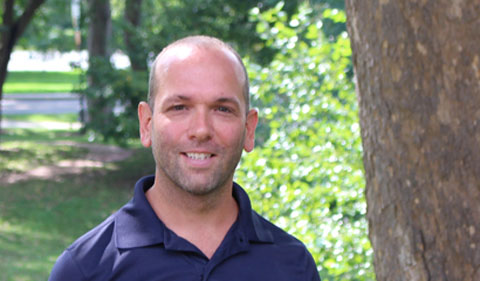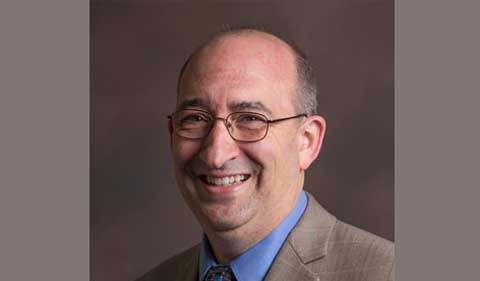Ohio University has launched a new, innovative sustainability model across the institution, creating three faculty-led Sustainability Hubs to advance initiatives in 12 thematic areas to further progress the University’s Sustainability and Climate Action Plans.
Two of the three hubs are led by College of Arts & Sciences faculty.
Dr. Theresa Moran, Assistant Professor and Director of the Ohio University Food Studies theme, is the Sustainable Living Hub Coordinator, concentrating on the sustainability themes of food, transportation, grounds and student affairs.
Moran is currently leading an initiative with faculty, staff, students and community members to advance OHIO’s institutional procurement of regional food and, on a parallel track, advance the OHIO Student Farm as a site of interdisciplinary and experiential learning.
Dr. Ryan L. Fogt, Associate Professor of Geography, leads the Sustainable Administration Hub, focusing attention on the sustainability themes of climate, procurement, investments and human resources.
Fogt also launched a “Climate & Sustainability Ambassadors” initiative to train student leaders to advance the reach, mission and objectives of the Office of Sustainability, while involving additional faculty and staff who teach sustainability-related courses, conduct sustainability research, or who have a passion for advancing sustainability across campuses and southeastern Ohio. As of March, more than 80 students have applied to be ambassadors.
The third hub is lead by Dr. David J. Bayless, Professor of Mechanical Engineering. The Sustainable Infrastructure Hub focuses on the sustainability themes of buildings, energy, water and waste.
Bayless is creating a program that will match faculty with staff and community members interested in utilizing University expertise to solve real-world problems. The program will enable faculty to incorporate a multi-disciplinary, outcomes-based approach in their courses and to utilize Ohio University campuses as laboratories for sustainability initiatives. As part of their coursework, students from different classes will form teams to identify sustainability issues within themes, engage stakeholders for data collection and analysis of potential solutions including their impact on the sustainability triple bottom line of People, Planet and Prosperity, and provide a solution to the University or local community for implementation.
University Forms New Sustainability Committee
Using feedback gathered from campus groups and other sustainability experts, the university developed a revised structure that included the creation of a new Sustainability Committee, co-chaired by Executive Vice President and Provost Chaden Djalali, Vice President for Finance and Administration Deb Shaffer and Vice President for Student Affairs Jason Pina. The Sustainability Hubs will report to the Sustainability Committee and will strive for engagement, collaboration and communication to be promoted across all University locations, including Athens, regional campuses and off-campus centers.
“As OHIO focuses on enhancing our sustainability efforts, this new model positions us to be a national leader to develop implementable pathways for our sustainability-focused initiatives,” said Shaffer. “With the appointment of our expert faculty as Hub Coordinators, we will have added leadership that not only ensures we are doing our best to maintain sustainability but encourages engagement and collaboration that leverages the expertise of our faculty, staff, students and community members.”
Faculty hub coordinators were selected in December and began coordinating with the Office of Sustainability in January to formulate hub initiatives.
How to Engage with Sustainability Hubs
Hub participants connect with the campus and local communities and learn more about OHIO’s sustainability efforts by signing up for a bi-weekly newsletter, engaging with Hub Coordinators and Office of Sustainability staff, and attending a new monthly Sustainability Seminar Series.
Each Hub Coordinator will lead one seminar per semester to update the campus and local communities on their hub initiatives and to attract more faculty, students, staff and community members to participate in the hub.
###






















Comments